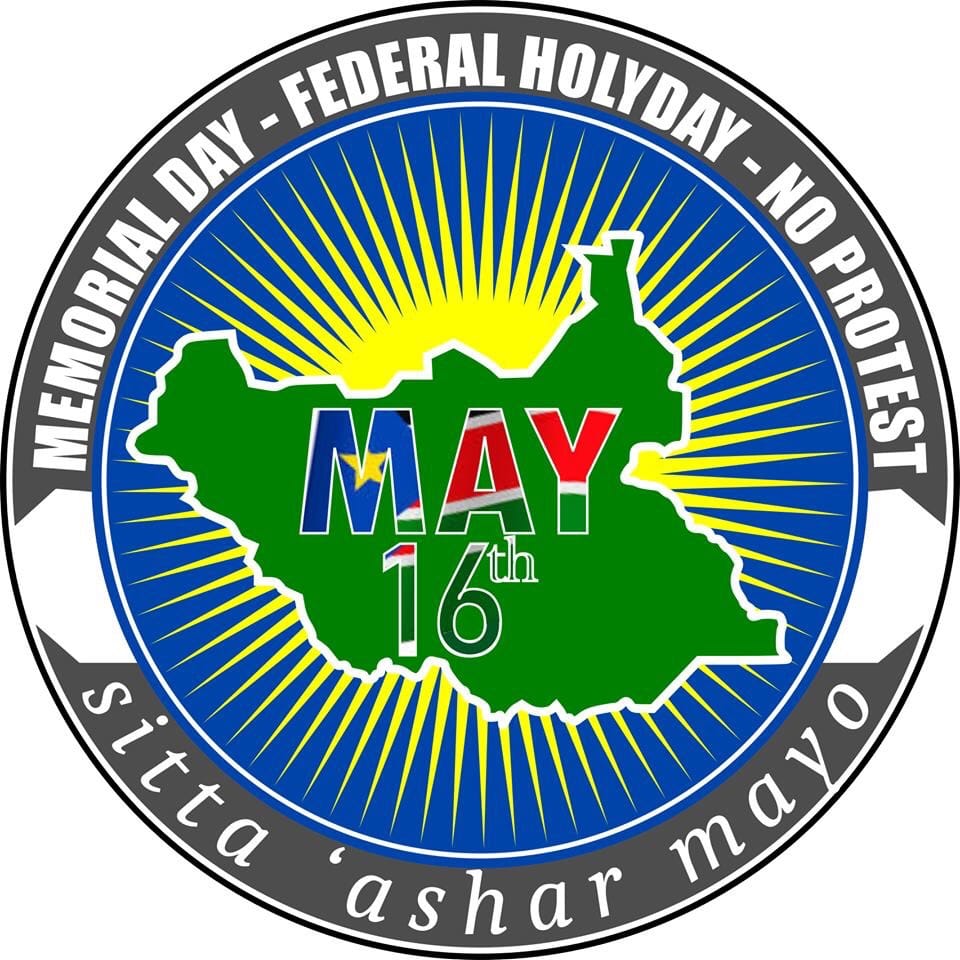What is celebrated on May 16th in South Sudan?

- Understanding the Significance of May 16th in South Sudan
- Historical Events Commemorated on May 16th in South Sudan
- Cultural Celebrations and Traditions on May 16th in South Sudan
- How May 16th is Observed Across Different Regions of South Sudan
- The Impact of May 16th Celebrations on South Sudanese Identity
Understanding the Significance of May 16th in South Sudan
May 16th holds profound significance for the people of South Sudan, marking a pivotal moment in the nation’s journey towards peace and stability. This date is primarily recognized as the anniversary of the signing of key agreements that have shaped the country's socio-political landscape. These agreements have not only aimed to address the longstanding conflicts but also to promote unity and foster reconciliation among the diverse ethnic groups within the nation.
Key Historical Events on May 16th:
- Signing of peace accords that aimed to end hostilities and promote dialogue.
- Establishment of initiatives focused on national healing and reconciliation.
- Recognition of the sacrifices made by those who fought for independence.
The observance of May 16th serves as a reminder of the resilience of the South Sudanese people. It highlights their collective commitment to building a prosperous future despite the challenges they face. On this day, various events and activities are organized throughout the country, including cultural performances, discussions, and community gatherings, all aimed at reinforcing national identity and solidarity.
Additionally, May 16th acts as an opportunity for South Sudanese leaders and citizens to reflect on the progress made since the agreements were signed. It encourages dialogue about the ongoing challenges and the importance of sustained efforts towards peace. By commemorating this date, South Sudan not only honors its history but also reaffirms its dedication to achieving a brighter future for all its citizens.
Historical Events Commemorated on May 16th in South Sudan
May 16th holds significant historical importance for South Sudan, marking various events that have shaped the nation’s journey toward independence and self-determination. This day is not only a reflection of the struggles faced by the people but also a celebration of their resilience and determination to forge a distinct identity.
One of the notable events commemorated on this day is the Declaration of the Republic of South Sudan in 2011, which followed decades of conflict and negotiation. This historic moment marked the culmination of a long and arduous struggle for autonomy, leading to South Sudan's official independence from Sudan. The day serves as a reminder of the sacrifices made by countless individuals who fought for freedom and sovereignty.
Additionally, May 16th is also a time to reflect on the significant peace agreements that have been signed over the years, aimed at ending hostilities and fostering reconciliation among different factions within the country. These agreements represent crucial steps toward achieving lasting peace and stability in a nation that has faced numerous challenges since its independence.
As South Sudan continues to evolve, the events of May 16th are a poignant reminder of the past, allowing citizens to honor their history while looking forward to a brighter future. The day is often marked by various activities, including educational programs, cultural performances, and community gatherings, aimed at fostering unity and promoting awareness of the country's rich heritage.
Cultural Celebrations and Traditions on May 16th in South Sudan
In South Sudan, May 16th is a day steeped in rich cultural significance, reflecting the diverse traditions and vibrant heritage of the nation. This date is often marked by various celebrations that showcase the unique customs of the numerous ethnic groups within South Sudan. The festivities typically involve communal gatherings, music, dance, and traditional rituals that reinforce community bonds and cultural identity.
Traditional Music and Dance
On this day, traditional music and dance play a central role in the celebrations. Each ethnic group has its own distinct musical styles and dance forms, often performed during communal events. For instance, the Dinka people are known for their energetic dances that are accompanied by rhythmic drumming, while the Nuer celebrate with songs that tell stories of their history and values. These performances not only entertain but also serve as a means of passing down cultural narratives to younger generations.
Rituals and Ceremonies
In addition to music and dance, May 16th is often a time for various rituals and ceremonies that hold spiritual significance. Many communities engage in traditional rites that honor ancestors and seek blessings for the future. These rituals may include offerings of food, prayers, and communal feasts, where families come together to share traditional dishes, reinforcing their cultural ties. The participation in these ceremonies reflects a deep respect for heritage and a commitment to preserving cultural practices.
Community Involvement
The celebrations on May 16th also emphasize community involvement, as individuals from different backgrounds come together to participate in the festivities. Local markets often spring to life with vendors selling handmade crafts, traditional attire, and local delicacies. This not only boosts the local economy but also fosters a sense of unity among diverse groups. The collaborative spirit of the day encourages dialogue and understanding, making it a vital occasion for cultural exchange and solidarity within South Sudan.
How May 16th is Observed Across Different Regions of South Sudan
In South Sudan, May 16th holds significant cultural and historical importance, with various regions observing the day through unique traditions and practices. This date marks the anniversary of South Sudan's independence and is a time for reflection, celebration, and unity among the diverse communities in the country.
Celebrations in Juba
In the capital city, Juba, the day is celebrated with a series of public events and ceremonies. Government officials and local leaders often gather to deliver speeches emphasizing national unity and progress. The streets are filled with music, dance, and parades showcasing the rich cultural heritage of South Sudan. Citizens participate in community events, including sporting competitions and cultural displays, fostering a spirit of camaraderie and patriotism.
Traditional Observances in Rural Areas
In contrast, rural regions of South Sudan may observe May 16th through traditional rituals and communal gatherings. Local tribes often come together to honor their ancestors and share stories of resilience and hope. Celebratory feasts featuring traditional dishes are common, where families and friends unite to strengthen their bonds. In some areas, cultural performances, such as traditional dances and songs, are integral to the observance, allowing communities to express their identity and pride.
Religious Observances
In many regions, religious observances also play a significant role in commemorating May 16th. Churches and mosques may hold special services or prayers, asking for blessings for the nation and its people. These spiritual gatherings provide an opportunity for reflection and collective hope for a peaceful and prosperous future. The intertwining of faith and national pride highlights the diverse ways South Sudanese people celebrate their shared history while embracing their cultural uniqueness.
The Impact of May 16th Celebrations on South Sudanese Identity
The May 16th celebrations in South Sudan serve as a profound reflection of the nation’s evolving identity. This day marks the anniversary of the establishment of the Sudan People's Liberation Army (SPLA), a pivotal moment in the country’s struggle for independence. The festivities not only commemorate historical milestones but also reinforce a sense of unity and pride among South Sudanese people.
Strengthening National Unity
The celebrations foster a sense of belonging among diverse ethnic groups within South Sudan. By coming together to honor a shared history, communities can bridge cultural divides and promote social cohesion. The events often feature traditional music, dance, and storytelling, allowing participants to engage with their heritage and reaffirm their collective identity. This communal aspect is vital in a country that has faced significant challenges in maintaining unity since its independence in 2011.
Emphasizing Cultural Heritage
May 16th also provides a platform to showcase South Sudan's rich cultural heritage. The festivities highlight various cultural expressions, including traditional attire, food, and art. These elements play a crucial role in reinforcing national pride and preserving indigenous customs. As younger generations participate in these celebrations, they are encouraged to embrace their roots and understand the importance of their cultural legacy in shaping the nation’s identity.
Inspiring Hope and Resilience
The significance of May 16th extends beyond mere commemoration; it serves as a beacon of hope for a brighter future. Amid ongoing struggles, the celebrations remind South Sudanese people of their resilience and the sacrifices made for freedom. This day symbolizes the collective aspirations of the nation, inspiring citizens to work towards peace, stability, and prosperity. Through the shared experience of celebration, South Sudanese individuals reinforce their commitment to building a unified and thriving nation.
Leave a Reply

Other celebrations and holidays